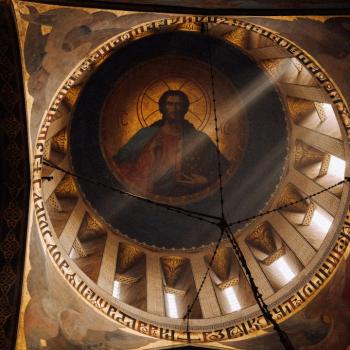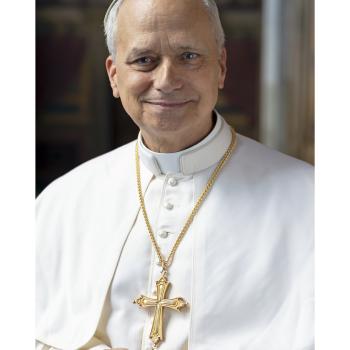What is the difference between Catholicism and Protestant Christianity? To summarize it in one phrase, Catholicism is the Thing against which Protestant Christianity rebels. I have a lot of compassion and admiration for our devout Protestant brothers and sisters. However, the reason I am a Catholic is because I hold a firm conviction that the way they formulate their identity is flawed on a foundational level. It seems unfortunate that they let their identity rest on the fact that they are not like us. If there was something fundamentally flawed about the Catholic Church that was addressed in the Reformation, this historical event should have finished in the 16th century.
By the way, this article should not be considered in isolation, as I plan to discuss this issue in a series of four articles. In this first article, I am going to question the identity of Protestant Christianity. Then, in the second article I will outline the main reasons I believe the Catholic Church is the true Church Jesus Christ himself founded. After that, in the third article I will outline the way that Protestant Christianity fails in those same areas that the Catholic Church succeeds. Finally, in the fourth article, I will express my admiration for Protestant Christianity and suggest ways that we can help each other grow.
Non-identity Identity
Any baseball fan is probably familiar with the Mets. We could argue that they are the “other team” from New York. If the Mets and Yankees play a game, I would probably root for the Mets, not because I admire the Mets, but because they are not the Yankees. I admit that even I know this is not the best way to establish an identity, even for something as inconsequential as sports.
It is never good to have a “not-identity” be the basis for your sense of self. I worry that this is the case for the views Protestants hold regarding Catholics. They constantly compare themselves to us, going all the way back to the nailing of the 95 theses on the door of the church at Wittenberg. Since that fateful day in 1517, every new branch of Protestant Christianity has continued the reactionary impulse, distinguishing themselves by dividing the Church. These manifestations of heresy force the Catholic Church to re-affirm her doctrine, “cutting away” those who are outside of the acceptable range of Catholic teaching. For those who have thus cut themselves off of the Church, the fragmentation of Christian denominations has not stopped during these five centuries of division.
We might be able to consider the Protestants as haters, always looking for things within the traditions of Catholicism of which they can disapprove. If someone is Catholic, yet rejects basic doctrine, they are falling into heresy. This becomes especially dangerous because the natural result is that the person builds their identity based on dissent rather than communion.

Rebel Without a Cause?
James Dean was an American actor famous for starring in the film Rebel Without A Cause. The film tries to capture the “weird ways of teenagers” in a manner that was perhaps too avant-garde for much of its original 1955 audience. Its success at the box office in spite of this speaks to the age-old American sympathy for the rebel. However, as Americans, we should be wary of this turning into blind support for the rebel in every situation. We might think that as Americans, we always support revolution, going back to our own roots. This is far from the case though and even our Founding Fathers were able to distinguish between the American and the French Revolution.
Repeat Radicalization
A Revolution founded on a “not-identity” stands in constant danger of re-radicalizing. The French Revolution is a prime example of this, as progressives are continually moving the goalposts about what they want to achieve and what a good leader looks like. A radicalizing element tends towards the fringes of thought, while a body that seeks to be universal has a much greater tendency to equilibrate in the middle. People break off from the Church in all directions, but they simply must turn towards the middle to find their way home. Chesterton captures well the sentiment of the crisis in his book The Thing.
Chesterton says that all the revolts against the Church, from even before the Reformation until now, tell the same strange story. Every great heretic has always exhibited three remarkable characteristics in combination. First, he picks out some mystical idea from the Church’s balance of mystical ideas. Second, he uses that one mystical idea against all the other mystical ideas. Third, he seems generally to have no notion that his own favorite mystical idea is a mystical idea, as mysterious or dubious or dogmatic as any of the Church’s other mystical ideas that he rejects. Thus Calvinists are obsessed only with the Sovereignty of God, Lutherans with the Grace of God, Methodists with the sin of man, Baptists with the Bible, Quakers with simplicity. The list goes on, it even includes religious and political movements outside of Christianity. Muslims are obsessed with the Oneness of God, Communists with the equality of men, Feminists with the equality of men and women, Materialists with creation apart from the Creator, Spiritualists with the rejection of materialism, and so on. In every case, these sects have taken one of the Church’s mystical ideas and exalted it above the rest, even against the rest. They have lost all the moderating and balancing measures of the Thing, the Catholic Faith (Dale Ahlquist, “Lecture 57: The Thing”).
Roots of the Reformation
If we go back to the roots of the Protestant Reformation, we see a few principal versions. We begin with Lutheranism, inspired by Luther’s revolt against Rome and focusing on a de-sacralization of the Roman rites. Luther originally maintained a version of the sacrament of the Eucharist but quickly began to slide away from the sacramental nature of the Church. Calvin and Zwingli laid a huge emphasis on predestination and challenged the traditional understanding of grace. King Henry VIII caved under the pressure of both his own lust and the political complications of being without an heir. He allowed himself to crumble and found it easier to give abbeys and lands to noblemen and bishops rather than face the rigors of married life as laid out by the Roman Pontiff.
The great difference between Catholicism and Protestant Christianity is that Catholicism is the action and Protestant Christianity is the reaction. This leads necessarily to a gap in the sense of identity of Catholics and Protestants and exposes the deep structural problems that originally led to the tremendous explosion of different sects which continues to this day. From being “one, holy, catholic church,” Christianity has unfortunately developed into literally thousands of sects, each one claiming to be the most faithful representation of Christianity. If the Reformation had worked, we could expect it to end by the close of the 16th century. What we witness instead is the continued proliferation of Protestant sects and the continued splintering of the Church.
What do you think? Comment below.
Subscribe to the newsletter to never miss an article.













